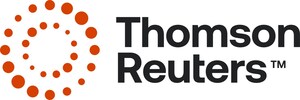Thomson Reuters-NPR Health Poll Finds Three in Four Americans Link Narcotic Pain Killers to Drug Addiction
30.8 Percent Have Questioned or Refused Physician's Recommendation of Narcotic Painkillers
ANN ARBOR, Mich. and WASHINGTON, Nov. 22, 2011 /PRNewswire/ -- More than three-quarters of Americans believe narcotic pain killers are linked to drug addiction and 59.5 percent associate the drugs with depression, according to the Thomson Reuters-NPR Health Poll.
Thomson Reuters and NPR conduct the monthly poll to gauge attitudes and opinions on a wide range of health issues.
The survey, which asked respondents their opinions and concerns regarding narcotic pain killers, found that 49.7 percent have used these drugs in the past. Of those, over one-third of respondents said they used the drugs despite having concerns regarding their use. The top concerns reported were potential side effects (44.9 percent), fear of addiction (27.5 percent) and concern about potential long-term health impacts (15.5 percent).
Among all survey respondents (those who have taken narcotic pain killers and those who have not), 77.2 percent said they believe the use of narcotic pain killers such as Oxycontin, Percocet, Vicodin or morphine can lead to drug abuse and 59.5 percent said they associated the drugs with depression. Additionally, 30.8 percent of survey respondents said they questioned or refused a physicians recommendation of narcotic pain killers. Those who have not taken narcotic pain killers in the past cited fear of addiction as their primary concern (38 percent), followed by association with drug abuse (24.8 percent) and side effects (20.8 percent).
"With such a significant number of responders having been prescribed a narcotic pain killer, our results suggest that these drugs are relatively easy to access despite the need for a physician's prescription," said Raymond Fabius, M.D., chief medical officer at the healthcare business of Thomson Reuters. "It's encouraging to see a healthy understanding of the addictive properties of narcotics among our survey population, but refusing to use them when they can be helpful may cause people to experience unnecessary pain."
To date, the Thomson Reuters-NPR Health Poll has explored numerous healthcare topics, including generic drugs, abortion, vaccines, food allergies, and organic and genetically modified foods. NPR's reports on the surveys are archived online at the Shots health blog here: http://www.npr.org/blogs/health/2011/11/22/142601714/when-weighing-painkillers-americans-worry-will-i-become-an-addict?ps=sh_sthdl
Thomson Reuters maintains a library of poll results: http://healthcare.thomsonreuters.com/npr/
The Thomson Reuters-NPR Health Poll is powered by the Thomson Reuters PULSE(SM) Healthcare Survey, an independently funded, nationally representative telephone poll that collects information about health-related behaviors and attitudes and healthcare utilization from more than 100,000 US households annually. Survey questions are developed in conjunction with NPR. The figures in this month's poll are based on 3,009 participants interviewed from October 1-13, 2011. The margin of error is 1.8 percent.
For a copy of the vaccine survey results. visit http://healthcare.thomsonreuters.com/npr/assets/NPR_report_PainKillers.pdf
About Thomson Reuters
Thomson Reuters is the world's leading source of intelligent information for businesses and professionals. We combine industry expertise with innovative technology to deliver critical information to leading decision makers in the financial, legal, tax and accounting, healthcare and science and media markets, powered by the world's most trusted news organization. With headquarters in New York and major operations in London and Eagan, Minnesota, Thomson Reuters employs more than 55,000 people and operates in over 100 countries. For more information, go to www.thomsonreuters.com.
About NPR
NPR is an award-winning, multimedia news organization and an influential force in American life. In collaboration with more than 900 independent public radio stations nationwide, NPR strives to create a more informed public - one challenged and invigorated by a deeper understanding and appreciation of events, ideas and cultures.
SOURCE Thomson Reuters
WANT YOUR COMPANY'S NEWS FEATURED ON PRNEWSWIRE.COM?
Newsrooms &
Influencers
Digital Media
Outlets
Journalists
Opted In





Share this article